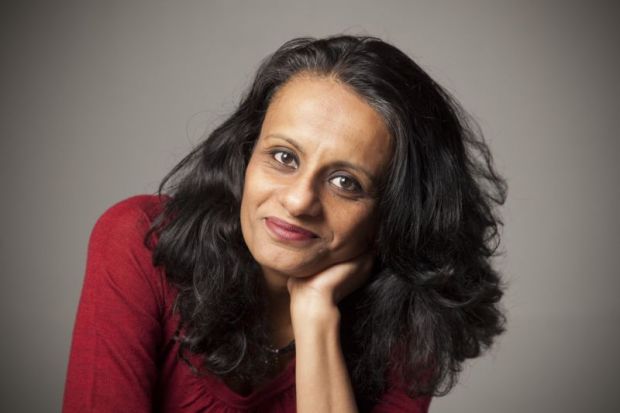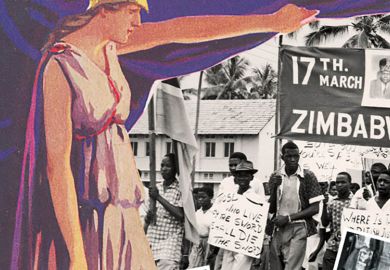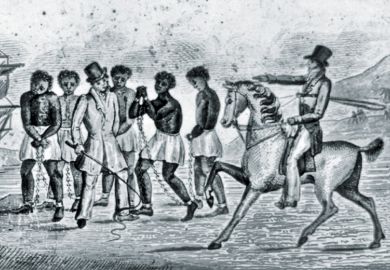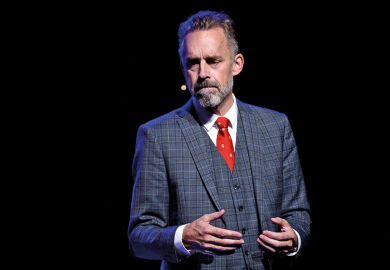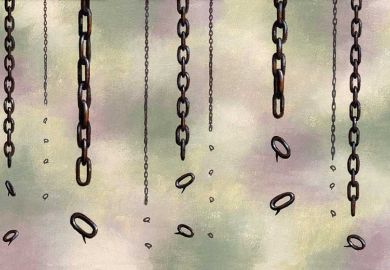“Even the mildest of criticism and it’s just Armageddon.” These are the words of Priyamvada Gopal, reader in anglophone and related literatures at the University of Cambridge, describing her experiences on social media and beyond.
Since she is both Asian and a woman, she is often subjected to savage abuse when speaking out about politics, race and education. Yet the worst, she told Times Higher Education, comes when she has a go at privileged, white and male “cult figures” such as Canadian academic Jordan Peterson. “Their followers set off mob attacks, which they then accuse others of doing to them,” she said. “I got parallel abuse criticising Hindu nationalism in India. Systematic trolling armies are unleashed,” hurling rape as well as death threats, said Dr Gopal.
What the two cases had in common, in Dr Gopal’s view, was “men in power using narratives of majority victimhood to entrench themselves and turning it against their detractors”. Furthermore, the basic story that “there are majorities imperilled by minorities” was itself “a narrative put in place by empire”.
Based in Britain since 2001, Dr Gopal was hired by Cambridge to teach south Asian and other international writing and “for many years didn’t talk or write about the empire at all”. In 2006, however, as she describes in her forthcoming book Insurgent Empire: Anticolonial Resistance and British Dissent, she took part in a discussion on BBC Radio 4’s Start the Week. There she found herself confronted by “the media face of the case for British imperialism, Niall Ferguson” and was a largely lone voice in challenging his “bullish assertions about the greatness of Britain’s imperial project and the benevolence of its legacies”.
It was this experience – and the limited level of knowledge that students bring to her classes – that alerted Dr Gopal to “a huge gap in discussions of the empire”.
Since her confrontation with Professor Ferguson, she believes that there have been further signs of more sympathetic attitudes to empire returning. This could be seen, for example, in the “balance sheet approach” adopted by academics such as Nigel Biggar, Regius professor of moral and pastoral theology at the University of Oxford. “To say, we appropriated the land, and, yes, there were some massacres and racial hierarchy, but look at the railways,” as she put it, “strikes me as the most inappropriate way to approach historical events in their complexity.” “The empire was meant to create wealth and appropriate labour and land. If you don’t think about it in those ways, it makes no sense. That is constitutive,” Dr Gopal said.
Dr Gopal’s new book sets out to celebrate the political agency of colonised peoples, its importance in bringing an end to empire and the impact it had on metropolitan liberal and radical thinking. She shows how there was always opposition to empire within the UK and how the anti-imperial struggle forged productive, if often tense, partnerships between activists from Britain and colonised countries.
On today’s debates about decolonising the curriculum, Dr Gopal stressed that “there’s a very clear difference between diversity and decolonisation”. “Just having me lecture on Salman Rushdie or Arundhati Roy, that’s not going to decolonise the department,” she said.
“We know that English literature [as a discipline] was conceived of as producing English identity in the crucible of empire...Decolonisation is about bringing the question of empire back on the table and saying: what are the multifarious ways in which it has affected how we think, what we teach and who we regard as great, and the ways in which we read and do or do not contextualise the emergence of those texts?” She had also been led to reflect on her own teaching, given that “the authors I taught from India were largely upper-caste Hindus”.
In her classroom, Dr Gopal has witnessed many students “turning from relatively bland well-meaning people who were open-minded but not especially aware to people who think quite sharply and passionately about issues in the course of a term or two. I have seen them become very critical thinkers.”
Thus, Cambridge’s move to initiate an inquiry into its relationship with slavery was “put on the table” by students, in Dr Gopal’s view.
Heartened “that the inquiry is going to think about Cambridge’s contribution to race science and the racial thinking that underpins slavery”, Dr Gopal would like to see it lead to an acknowledgement that “certain communities and countries carry the blight [of] the legacies of appropriation” and money “put towards a modest acknowledgement of what happened”.
Such funds could, for example, be used to “facilitate more non-traditional black students – I’m not saying BAME [black, Asian and minority ethnic], I mean black students – coming to Cambridge. But you can also make reparations at the level of representation: we have one black faculty member and she is international and not black British, though Asians are very well represented. That is a reparation that can be made as a policy decision without any extra money.”
POSTSCRIPT:
Print headline: It’s ‘Armageddon’ online if you criticise
Register to continue
Why register?
- Registration is free and only takes a moment
- Once registered, you can read 3 articles a month
- Sign up for our newsletter
Subscribe
Or subscribe for unlimited access to:
- Unlimited access to news, views, insights & reviews
- Digital editions
- Digital access to THE’s university and college rankings analysis
Already registered or a current subscriber?
